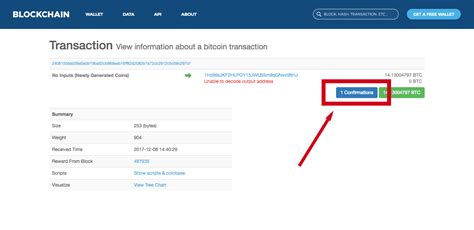Can an unconfirmed transaction be confirmed years later?
As Bitcoin knows, confirmation times for transactions on the network can be a significant hurdle. However, what happens if you make a transaction with low fees and it doesn’t get confirmed even after a few weeks? The answer lies in the fascinating world of the Bitcoin mempool and how nodes process transactions.
The Mempool: A Centralized Pool of Unconfirmed Transactions
The mempool is a decentralized network that stores unconfirmed transactions, waiting for a node to confirm them. Essentially, it’s a queue where nodes submit their pending transactions, hoping they’ll be confirmed soon. This creates an efficient way to handle the high volume of transactions on the Bitcoin network.
How Node Confirmation Works
When you make a transaction with low fees and it doesn’t get confirmed immediately, it’s added to the mempool. Nodes periodically check the mempool for new transactions and attempt to confirm them using complex algorithms and cryptographic techniques. If successful, the transaction is included in the blockchain and becomes permanent.
The Problem: Low Fees and Long Confirmation Times
However, if you make a transaction with low fees (e.g. 1-2 satoshis), it may not be confirmed immediately due to the high volume of other transactions competing for space. This leads to several problems:
- Node Congestion: With many transactions pending in the mempool, nodes can experience congestion and slow down their processing times.
- Confirmation Latency: If a node tries to confirm a transaction unsuccessfully, it may spend more time waiting for confirmation than actually processing other transactions.
Can an unconfirmed transaction be confirmed years later?
While it is theoretically possible for an unconfirmed transaction to be confirmed years later, there are a few practical considerations:
- Blockchain updates
: The Bitcoin network undergoes regular block updates, which can temporarily move pending transactions out of the mempool.
- Node updates: New nodes or updates could prioritize recent transactions over older ones, potentially moving them out of the mempool and onto the main blockchain.
- Consensus algorithm changes: Changes to the consensus algorithm, such as the introduction of sharding, can change how transactions are prioritized.
Reality: Confirmation times still vary
In practice, confirmation times for unconfirmed transactions can vary significantly, even if they were not confirmed immediately. For example:
- If a transaction has been delayed due to node congestion or high fees, it could take weeks or even months for a node to confirm it.
- Nodes can have different priorities and processing speeds, which can lead to variations in confirmation times.
Conclusion
While an unconfirmed Bitcoin transaction may not be directly confirmed years later, it is not impossible. The mempool and node consensus processes work together to manage the network, but occasional delays or congestion can occur. As with any cryptocurrency, understanding the underlying mechanisms is essential to making informed decisions about buying, selling, and storing Bitcoin.
Final Thoughts

The decentralized nature of Bitcoin means that transactions are not as instantaneous as traditional payment systems. However, by tracking node performance, blocked updates, and consensus algorithm changes, you can better understand how transactions are processed and when they might be confirmed.
